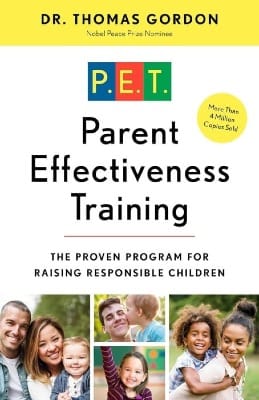
P.E.T., or Parent Effectiveness Training, is an eight-week course that’s appropriate for anyone who wants to improve their relationship with the children in their lives, experience greater ease, and fewer power struggles.
I offer P.E.T. to both organizations and individuals who are looking for training in core communication and conflict resolution skills. One of the many benefits of this course is that the skills we learn apply to all human relationships, so there's a ripple effect with partners, work relationships, and other family members.
P.E.T. facilitates clear communication and problem-solving with children of any age and ability, including infants, toddlers, and teens. The program began in 1962 and has found success in over 53 different countries.
This powerful, research-backed program takes place in a small, supportive group atmosphere with 6 - 10 people. The weekly three-hour sessions unfold over eight weeks total and they can take place in-person or online using Google Meet.
Each session is active, hands-on and practical. From day one, participants begin applying the tools they learn to real-life parenting situations. The format blends short presentations, live skill demonstrations, workbook exercises, coaching, group discussion, and role-playing.
P.E.T. empowers parents to connect more deeply in their relationship with their children and to find their own best solutions to their challenges as a parent. The textbook and workbook support the practice, and the group is a key support system as we learn and practice the skills.
Why Offer P.E.T. Through Your Organization?
- It builds lifelong, transferable skills—benefiting not just families, but your entire community.
- It empowers participants to find their own best answers, reducing dependence on top-down advice.
- It creates a space of shared learning and connection, strengthening your program’s relational impact.
Parents-to-be, grandparents, alloparents, childcare workers, and anyone who cares for children can benefit from this training.
P.E.T. began in 1962 and was the first national parenting program. Today, there are over 50,000 different parenting programs. You can read a comparison of some of these here.
Here's a comparison of common outcomes between P.E.T. and Behavioural Models:
| P.E.T. Approach | Behavioural Model |
|---|---|
| Skills taught to both child and parent | Emotional intelligence not addressed |
| Resilience enhanced | Resilience skills not addressed |
| Internal, intrinsic motivation and ethical moral development | External behavioural motivation |
| Child acts out of consideration for others | Child acts out of “Will I be punished or rewarded for my behaviour?” |
| Lifelong relationship developed | Relationship may improve, but not typically lifelong |
| Skills are transferable across all relationships (partner, friends, work, etc.) | Skills tend to be specific to one age group |
About the Gordon Model and other skills-based programs:
The Gordon Model, developed by psychologist Dr. Thomas Gordon, is a set of communication and conflict resolution skills that apply to all human relationships.
The philosophy behind the model is rooted in the concept that the use of power is destructive in any relationship — whether that relationship exists between parents and children, workplace leaders and group members, teachers and students, or within marriages and friendships — and that relationships that maintain a relatively equal balance of power are more harmonious and well-functioning.
The concept of “problem ownership” is primary in the Gordon Model, followed by skills in Active Listening and I-Messages to maintain the balance of communication in a relationship. The Gordon Model uses a specific process called Method III, or No-Lose Conflict Resolution, to resolve conflicts between individuals or within groups.
Method III taps in to the experience and creative potential of all group members in order to arrive at higher-quality, lasting solutions to conflict (so the same problems don’t need to be solved over and over again!).
Five distinct programs exist for individuals to learn and practice these skills with a Certified Instructor in a group setting:
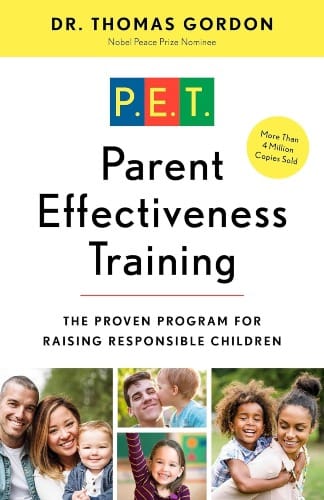
P.E.T. began in 1962 as the first national parent effectiveness training program. Dr. Thomas Gordon was a consultant to the White House Conference on Children, and he was nominated three times for the Nobel Peace Prize.
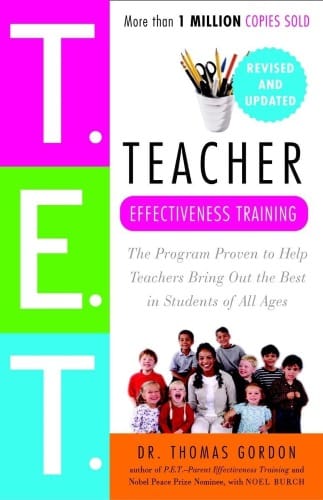
T.E.T. is an effectiveness program for teachers, counselors, and administrators. The course began in 1965 and has been updated a number of times, most recently in 2006. It’s been taught in over 20 countries.
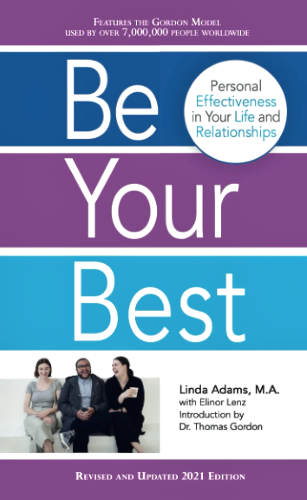
Be Your Best was originally developed by Linda Adams as an effectiveness training course for women. It has since been revised and expanded as a course for individuals around the world.
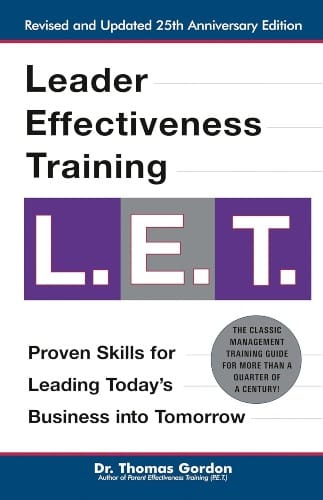
Leader Effectiveness Training contextualizes the Gordon Model and its concept of group-centered leadership into workplace relationships.
And Y.E.T., Youth Effectiveness Training, exists to offer young people an avenue to learn and practice the Gordon Model skills in their own lives and relationships.